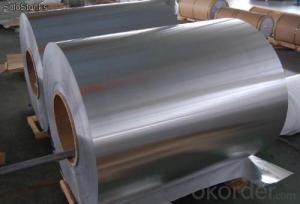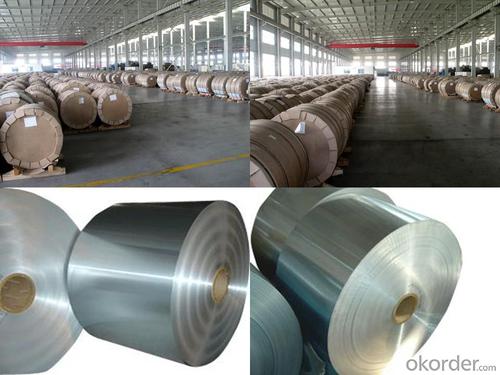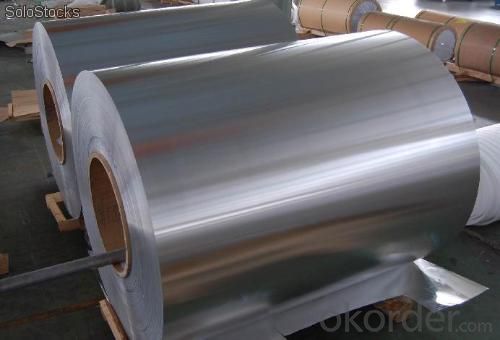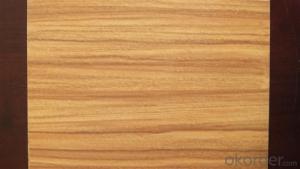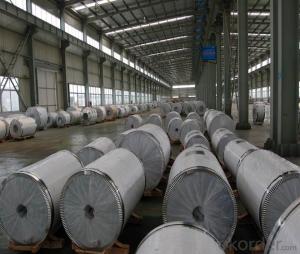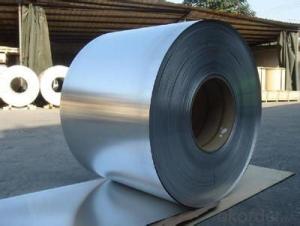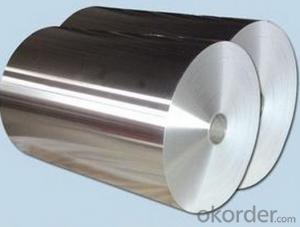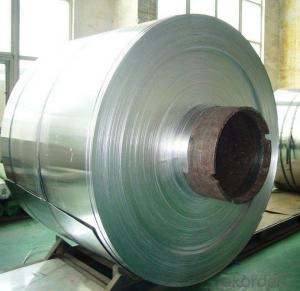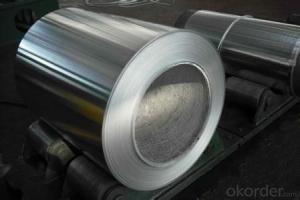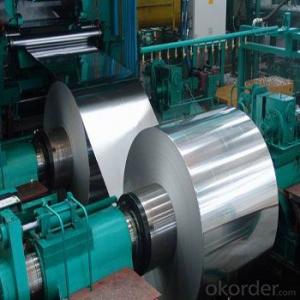6061 Aluminum Coil - Roll of Aluminum 3003 H14 /1100 H14
- Loading Port:
- Shanghai
- Payment Terms:
- TT OR LC
- Min Order Qty:
- 5 m.t.
- Supply Capability:
- 100000 m.t./month
OKorder Service Pledge
OKorder Financial Service
You Might Also Like
1.Structure of Roll of Aluminum 3003 H14 /1100 H14
Roll of Aluminum 3003 H14 /1100 H14 is designed for many field such as electronics, instruments, lighting decoration, packing industry, and house decoration, curtain wall, honeycomb-core panel, sandwich panel, aluminum composite panel, aluminum composite pipe etc.. Roll of Aluminum 3003 H14 /1100 H14 is hard and everlasting under the blazing sun. You can choose the alloys as your habitation and we will do our best to meet your requests.
2.Main Features of the Roll of Aluminum 3003 H14 /1100 H14:
• Smooth surface
• High manufacturing accuracy
• High strength of extension and yield
• Well packaged
• No marks, no scratch, no excessive oil
3. Roll of Aluminum 3003 H14 /1100 H14
Alloy: 1050, 1060, 1070, 1100, 3003, 3004, 3005, 3105, 5052, 5083, 5754, 8011, 8006
Temper: H14, H16, H18, H22, H24, H26, H32, O/F
Thickness: 0.2mm-100mm
Width: 30mm-1700mm
4. Production of Roll of Aluminum 3003 H14 /1100 H14
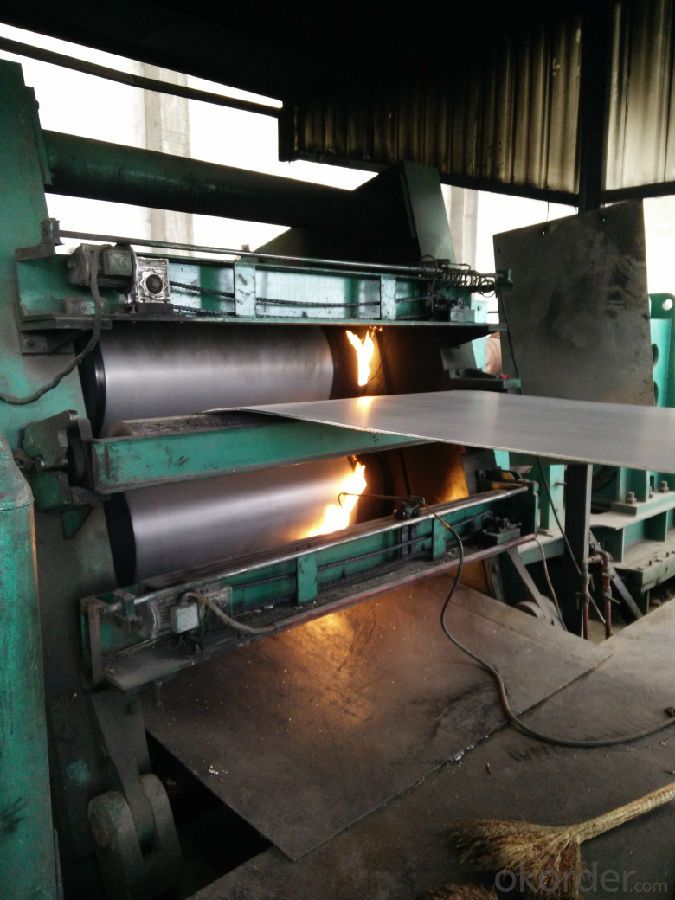
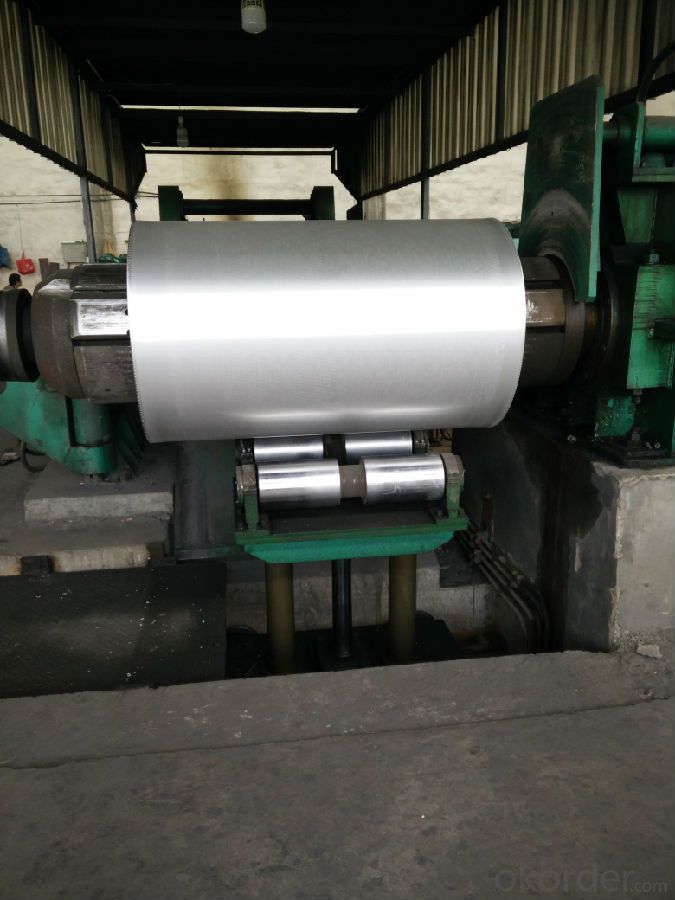
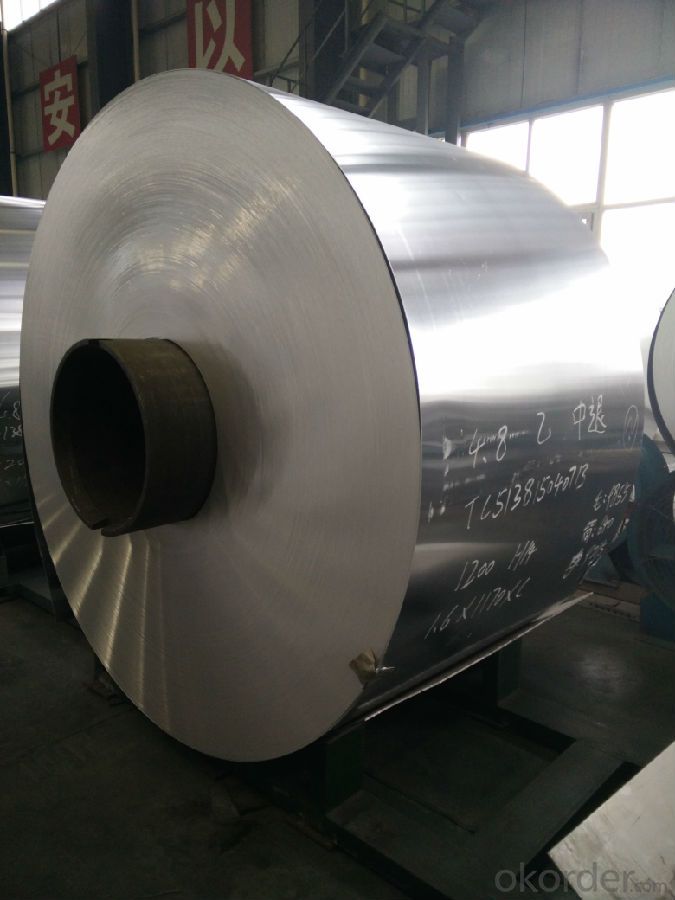
5.FAQ
We have organized several common questions for our clients,may help you sincerely:
① How about your company?
A world class manufacturer & supplier of aluminum coil and alloy blanks. Aluminum production base is comprised of 18 aluminum annealers, 10 coil and foil mills, 4 continuous production lines, 2 hot rolling production line and 3 prepainted lines.
Export 5000 tons per month to Asia, America and Middle East. Always do the best for our clients.
②Can you guarantee the quality of the products?
We are responsible for the quality of materials to get a long-term cooperation with clients in a reasonable period of time and we are glad to arrange and coordinate any third party inspection for you.
③What is the delivery time after purchase?
35 day after receiving client’s deposit or correct LC
- Q: Can aluminum coils be used in food processing industries?
- Aluminum coils find applications in the food processing industry. This is because aluminum possesses several advantageous properties that make it a popular choice in this field. It is a lightweight and flexible material with excellent thermal conductivity. These characteristics make it ideal for various uses such as refrigeration, heat exchangers, and ovens in food processing. Moreover, aluminum is non-toxic, resistant to corrosion, and does not affect the taste or odor of the food being processed. Therefore, it is a safe and hygienic option for food processing equipment. Additionally, aluminum coils are easy to clean and maintain, ensuring the highest standards of cleanliness and food safety are upheld. Consequently, due to their outstanding performance and suitability for food-related applications, aluminum coils are widely accepted and utilized in the food processing industry.
- Q: How are aluminum coils used in HVAC systems?
- Aluminum coils are extensively used in HVAC (Heating, Ventilation, and Air Conditioning) systems for their excellent heat transfer properties and durability. These coils play a crucial role in the cooling process by efficiently removing heat from the air. In an HVAC system, aluminum coils are typically located in the condenser and evaporator units. The condenser coil is responsible for releasing heat to the surroundings by transferring it to the outdoor air, while the evaporator coil absorbs heat from indoor air, cooling it down. Aluminum is a preferred material for these coils due to its high thermal conductivity, which allows for efficient heat transfer. The coils are made of thin aluminum fins, which are attached to aluminum tubes. This design maximizes the surface area of the coil, enabling better heat exchange between the refrigerant flowing through the tubes and the air passing over the fins. During the cooling process, the refrigerant circulating through the coil absorbs heat from the indoor air, converting it into a gas. The heat is then transferred to the aluminum fins, where it is dissipated to the surrounding air. As a result, the air passing through the evaporator coil becomes cooler, creating a comfortable indoor environment. Similarly, in the condenser unit, the refrigerant releases heat to the outdoor air through the aluminum coils. This allows the refrigerant to return to its liquid state, ready to be cycled back to the evaporator coil for the cooling process to continue. Aluminum coils are also favored in HVAC systems for their resistance to corrosion, which ensures their longevity and reliability. They are lightweight, making them easier to handle during installation and maintenance. Additionally, aluminum coils are recyclable, contributing to a more sustainable and eco-friendly HVAC system. Overall, aluminum coils are an essential component of HVAC systems, providing efficient heat transfer, durability, and corrosion resistance. Their use significantly contributes to the cooling and comfort of indoor spaces.
- Q: Can aluminum coils be used in curtain wall systems?
- Yes, aluminum coils can be used in curtain wall systems. Aluminum is a popular material choice for curtain walls due to its lightweight, durable, and corrosion-resistant properties. Aluminum coils can be easily fabricated and formed into the desired shapes and profiles required for curtain wall systems, making them a suitable option for this application.
- Q: What are aluminum coils used for?
- Aluminum coils are commonly used in various industries, such as construction, automotive, and HVAC, for their excellent thermal conductivity and corrosion resistance properties. They are primarily used for manufacturing heat exchangers, air conditioning systems, refrigeration units, and other heat transfer applications.
- Q: I am shopping for new Rollerblades and see their newer skates have Aluminum framesand not the composite which I feel is more sturdier. What do you think of the aluminumframes? I was not impressed.
- Technically okorder /... that were extremely good but the deal probably fell apart when the original Mogema was dissolved.
- Q: How are aluminum coils tested for surface roughness?
- Various methods are employed to test the surface roughness of aluminum coils, guaranteeing that they meet the necessary quality standards. One frequently utilized technique involves the utilization of a surface roughness tester or profilometer. This device gauges the roughness of the coil surface by tracing a stylus or probe across it and recording the height variations. The surface roughness tester furnishes data such as Ra (average roughness), Rz (average peak-to-valley roughness), and Rt (total height roughness). These parameters aid in evaluating the surface quality of the aluminum coil and ascertaining whether it adheres to the desired specifications. Additionally, visual inspection is commonly performed to identify any visible defects, scratches, or irregularities on the surface. This inspection can be carried out manually by trained operators or with the assistance of automated systems that employ cameras and image analysis algorithms to detect imperfections. Another method utilized to assess surface roughness involves the use of laser scanners. These scanners emit laser beams that bounce off the surface of the aluminum coil and are subsequently measured to determine the surface profile and roughness. Laser scanners offer high-resolution, contactless measurements, rendering them highly accurate and efficient for evaluating surface roughness. All in all, a combination of surface roughness testers, visual inspection, and laser scanners are typically employed to test the surface roughness of aluminum coils, guaranteeing that they meet the necessary quality standards for diverse applications.
- Q: Can aluminum coils be used in agricultural applications?
- Aluminum coils are suitable for agricultural applications. They offer numerous benefits for agricultural purposes due to their versatility and lightweight nature. In the agricultural industry, aluminum coils are commonly utilized in greenhouse frames, irrigation systems, and grain storage bins. The resistance to corrosion is one of the key advantages of aluminum coils in agricultural applications. Aluminum is naturally resistant to rust and can withstand exposure to moisture, chemicals, and other elements commonly found in agricultural environments. As a result, it is a durable and long-lasting choice for agricultural equipment that needs to endure harsh conditions. Moreover, aluminum coils have excellent thermal conductivity, allowing them to efficiently transfer heat. This property makes them ideal for heat exchangers, which are frequently used in agricultural machinery like tractors and combine harvesters. Efficient heat transfer helps maintain optimal operating temperatures and enhances overall equipment performance. Additionally, the lightweight nature of aluminum coils makes them easy to handle and transport. This is particularly advantageous in agricultural applications where equipment needs to be frequently moved, such as portable irrigation systems or lightweight structures. The lightweight nature of aluminum also aids in reducing fuel consumption in machinery, leading to cost savings and environmental benefits. Furthermore, aluminum is a non-toxic material, ensuring its safety in agricultural applications. It does not release any harmful chemicals or leach into the soil, thus keeping crops uncontaminated and safe for consumption. In conclusion, aluminum coils are a reliable and efficient choice for various agricultural equipment and structures. Their corrosion resistance, thermal conductivity, lightweight nature, and non-toxic properties contribute to increased productivity and sustainability in the agricultural industry.
- Q: What are the different types of surface treatments for aluminum coils?
- There are various types of surface treatments available for aluminum coils, including anodizing, painting, laminating, and chemical conversion coating.
- Q: Are aluminum coils suitable for decorative purposes?
- Yes, aluminum coils are suitable for decorative purposes. Aluminum is a versatile material that can be easily molded into various shapes and sizes, making it suitable for decorative applications. Its lightweight nature, durability, and resistance to corrosion make it an ideal choice for both indoor and outdoor decorative projects. Additionally, aluminum can be finished with different coatings and finishes, such as powder coating or anodizing, to enhance its aesthetic appeal. These coatings can provide a wide range of colors, textures, and patterns, allowing for endless design possibilities. Furthermore, aluminum coils can be easily formed into intricate designs, making them suitable for decorative elements like trims, accents, panels, or even sculptures. Overall, aluminum coils offer a cost-effective, durable, and aesthetically pleasing option for various decorative purposes.
- Q: I have completely disassembled my aluminum bass boat and it is being sandblasted.I am restoring the boat and will be giving it a new paint job.What do you recommend in the way of primer,paint or anything else I need to know.I just don,t want to mess it up by using the wrong thing.Best answer gets a fishing trip in the same boat we are talking about. If you can make it here I will put you on some fish.Catfish,bream,crappie,bass or even saltwater fish.
- Altough Pettit says you can topcoat this primer, you will probably get a better result if you prime the primer with whatever is recommended for the type of topcoat you use. For the hull, use a paint with a high UV rating, and avoid using red, it oxidizes faster. I would also suggest you use the Alumaprotect inside the hull as well.
Send your message to us
6061 Aluminum Coil - Roll of Aluminum 3003 H14 /1100 H14
- Loading Port:
- Shanghai
- Payment Terms:
- TT OR LC
- Min Order Qty:
- 5 m.t.
- Supply Capability:
- 100000 m.t./month
OKorder Service Pledge
OKorder Financial Service
Similar products
Hot products
Hot Searches
Related keywords

